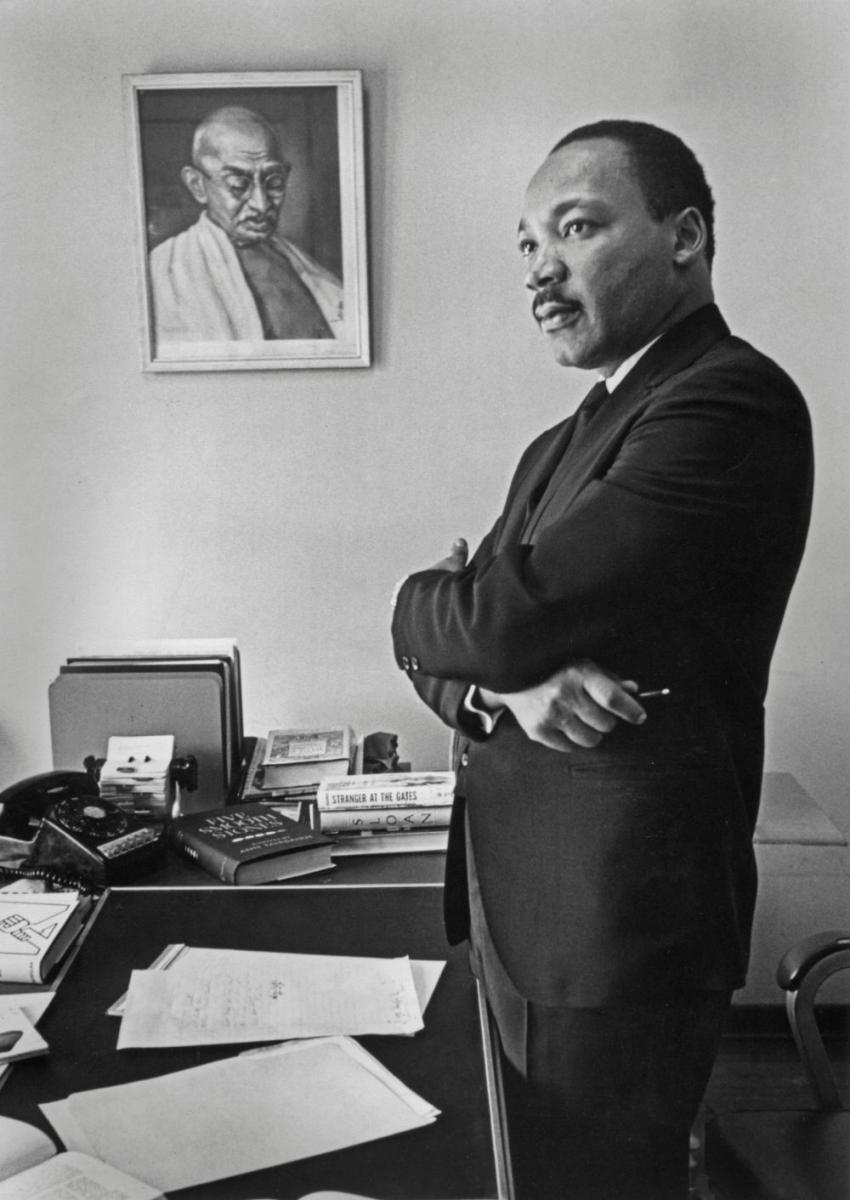Martin Luther King Jr. and Mahatma Gandhi were two influential leaders that employed different leadership styles and strategies to fight against social injustice, but their common goal was to create a more just and equal society. King was a charismatic and passionate speaker who relied on nonviolent resistance. In contrast, Gandhi’s philosophy of Satyagraha was based on his life of self-discipline, self-sacrifice, and personal transformation. Both leaders had a significant impact on society, with King advocating for civil rights in the United States and Gandhi leading the Indian independence movement, inspiring nonviolent resistance movements around the world. Their legacies serve as a reminder of the power of nonviolent resistance and standing up for what is right.
Influential Leaders: Comparing Martin Luther King Jr. vs. Gandhi
Throughout history, there have been many leaders who have made a significant impact on the world. Martin Luther King Jr. and Mahatma Gandhi are two such leaders. Both were influential figures who fought tirelessly for their beliefs and made a lasting impact on society. In this article, we will compare and contrast the leadership styles, strategies, and impacts of these two iconic figures.
Leadership Styles
Martin Luther King Jr. and Mahatma Gandhi had vastly different leadership styles. King was a charismatic and passionate speaker who inspired his followers through his powerful oratory skills. His speeches were delivered with great emotion and were often met with thunderous applause. King was also a skilled strategist, who knew how to leverage the power of the media and public sentiment to his advantage.
On the other hand, Gandhi’s leadership style was more subtle and based on personal example. He lived a simple life and practiced what he preached. His followers were inspired to follow his lead due to his personal example of living a life based on his principles. Gandhi’s approach to leadership was more focused on self-discipline, self-sacrifice, and personal transformation.
Strategies
King and Gandhi had different strategies in their pursuit of social justice. King’s approach was more centered on nonviolent resistance, where he advocated for peaceful protests, sit-ins, and civil disobedience. He believed that nonviolence was the most powerful tool available to oppressed people in their struggle against injustice.
Gandhi’s strategy, on the other hand, was based on his philosophy of Satyagraha or “truth force”. He believed in engaging in nonviolent resistance in the face of injustice and provocation. Unlike King, Gandhi would fast, pray, and even go to jail to protest injustice. He believed in using nonviolent tactics to bring about social change, and often used hunger strikes to draw attention to his cause.
Impacts
The impact of Martin Luther King Jr. and Mahatma Gandhi on society has been immense. King’s leadership during the civil rights movement in the United States helped bring about significant legal changes in the country. His advocacy for civil rights legislation and voting rights for African Americans spurred major political changes that transformed the nation.
Gandhi’s philosophy of nonviolent resistance has inspired countless movements around the world. His leadership during the Indian independence movement helped bring about the end of British colonial rule in India. Gandhi’s ideas have been used to effect change in countries such as South Africa, the Philippines, and Hungary.
While both leaders had different approaches to leadership and strategies, they both shared a common goal of social justice and equality. Their lives and legacies continue to inspire generations to strive for a better, more just society.
Conclusion
In conclusion, Martin Luther King Jr. and Mahatma Gandhi were two influential leaders who left a lasting impact on society. They had different leadership styles and strategies, but their common goal was to fight against injustice and to create a more just and equal society. Their legacy serves as a reminder of the power of nonviolent resistance and the importance of standing up for what is right.
